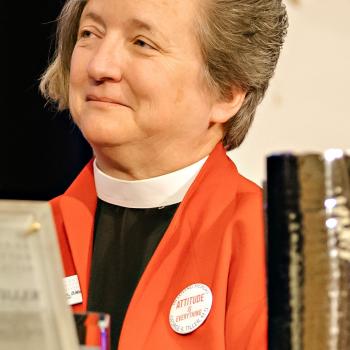Atheist blogger Bob Seidensticker claims that there is no such thing as an objective morality. He’s picking a fight with C.S.Lewis who argued in Mere Christianity that the idea of natural law is the cornerstone argument for the existence of God. “If there’s a law there’s a lawgiver”. Lewis said that there are some basic rights and wrongs that everybody everywhere accepts. “If you step on my toe on purpose. That’s wrong.” Everybody agrees.
Except Bob. He writes:
To the person who insists that objective morality exists, I say: show me. Take a vexing moral issue—abortion, euthanasia, stem cell research, capital punishment, sex before marriage, torture, and so on—and show us the objectively true moral position. If you want to say that objective morality exists but it’s not reliably accessible, then what good is it? This kind of objective morality that looks nonexistent might as well be.
The problem here is that Bob has read C.S.Lewis, but I don’t think he’s gone further, and to be fair, as I remember Lewis’ argument, he also didn’t take the argument back far enough. We must remember that Mere Christianity was Lewis’ attempt to translate the Christian argument for a wide and basically educated audience.
Also–Lewis wasn’t a Catholic. His argument only goes so far. I would grant Bob’s point that morality is very complex and there is very little agreement on what might be ‘right’ or ‘wrong’ in issues like abortion and euthanasia, capital punishment, sex before marriage etc.
Bob’s argument seems to be, “See, everybody disagrees about these particular issues, therefore there is no agreed morality, therefore there is no such thing as natural law, therefore there is no great objective morality.” I’m afraid this is rather sophomoric.
Natural Law is not simply some sort of arbitrary morality that is imposed by the great lawgiver who sits on a cloud and give Moses the Ten Commandments in order to prove his existence. Instead, natural law is derived from the nature and person of God himself. Aquinas teaches that God is simple. This means his Being and Essence are one. This Being and Essence are the foundation of all existence. To put it simply–all that is relies on the One who IS. The concept of Natural Law is therefore based in the sheer fact of existence. We begin, therefore, with the premise that the fact that something exists is better than that something does not exist. That something does not exist is nothing. It is a void. It is an emptiness. Against this all should be able to agree that existence is something. It is a positive, not a negative. It is a reality, not a void.
It is this “Existence versus non-existence” from which we derive the concept of Natural Law. We deem a thing to be ‘good’ if it exists. It is interesting, therefore in the Hebrew creation myth that God creates the world ex nihilo “out of nothing”. This is an important and profound philosophical statement. Furthermore, after he creates something in the creation myth we are told that God declares, “That’s Good.”
The concept of “Good” therefore is primary and derived naturally from the fact of existence. Then what is evil? Evil is nothing positive. The devil cannot create anything. All he can do is twist and distort or destroy that which is good. Therefore truly Christian moral theology is not dualistic. Good and Evil are not equal forces. Instead, evil is derivative. Evil is anything which distorts, corrupts or destroys that which is good, and if “Good” is that which exists or lives or is being brought into existence as something positive, then evil is that which destroys, distorts or corrupts that which is positive and which exists–or which is Good.
If readers will excuse the abstruse explanation, this is the foundation of natural law, that we all understand that at the root of it all there is such a thing as “Good” and such a thing as “Evil” and that “Good” is what exists, and is positive and natural and full of life. “Evil” is anything which destroys, distorts or corrupts the good. On this all people should be able to agree, and this is the foundation of all the rest of what we call “Natural Law.”
Of course, when we get into the particulars things get complicated. Nobody’s arguing that.
However, I believe the argument still stands that there is such a thing as Natural Law, and this is based in the mere fact of anything existing at all, and if it exists, then it is more positive than if it did not exist, and this we define as “Good.” Whether the sheer fact that anything exists demands a divinity is the subject for a different debate on something called the Ontological Argument.











